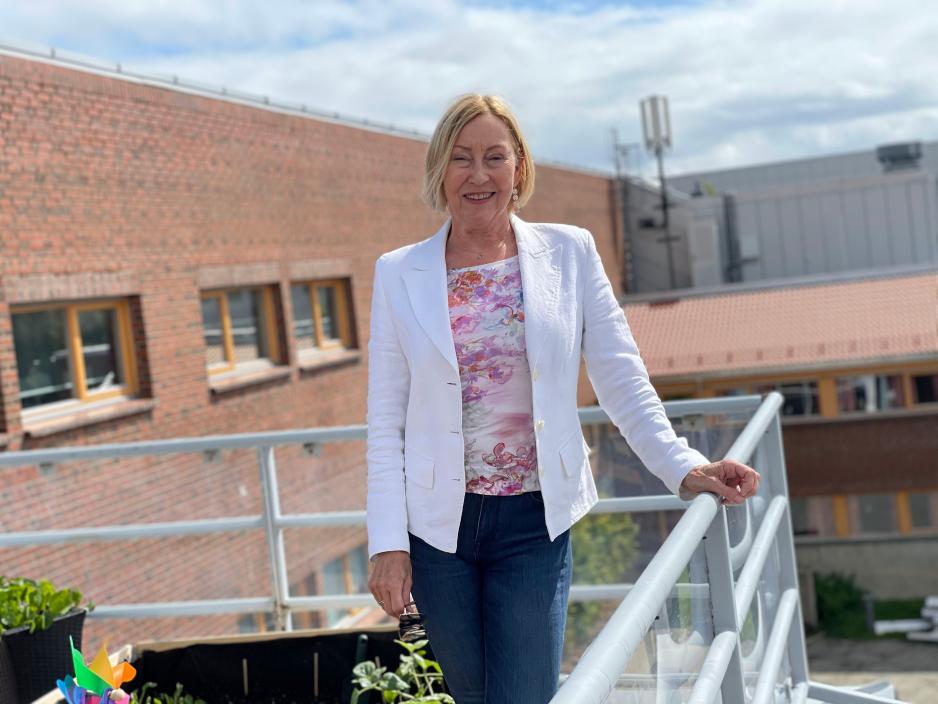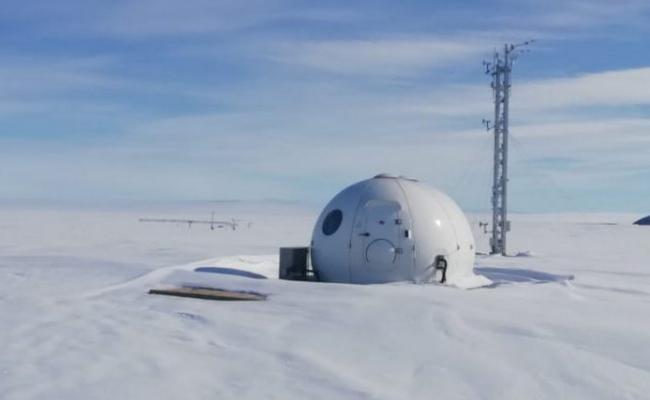The Arctic Congress: Only Half of the Arctic Will Convene in Northern Norway: "A Sensitive Topic"
At the end of May, three Arctic conferences are combined to form the Arctic Congress. Around 1,500 researchers, policymakers, businesses, and students will gather in Bodø, Northern Norway, but half of the Arctic will be absent as sanctions against Russia continue to restrict Arctic research cooperation.
Grete Hovelsrud is the president of IASSA - Arctic Social Sciences Association and this year, she is responsible for organizing the triennial International Congress of Arctic Social Sciences (ICASS).
In a bid to disseminate Arctic research to a broader audience and promote multidisciplinary cooperation, the congress joined forces with the annual High North Dialogue and UArctic Congress. The result, the Arctic Congress, will occur in Bodø, Northern Norway, from May 29th to June 3rd.
"The main objective is to disperse the cutting edge of multidisciplinary Arctic science and create meeting places," Hovelsrud tells High North News.
Arctic Congress Bodø 2024
- Combines three Arctic congresses: High North Dialogue, ICASS XI, and UArctic Congress 2024.
- Hosted by the Nordland Research Institute and Nord University.
- Researchers, policymakers, businesses, and students will gather in Bodø in Northern Norway for the event.
- The main themes are People of the North, Sustainable Economic Developments, Climate and Environment, and Oceans. Broad and neutral themes allow for a wide range of researchers to present their work.
- The themes are the same as the four priority topics chosen by Norway for its Chairship of the Arctic Council 2023-2025.
- The congress includes high-level plenary sessions, several parallel sessions, network activities, and social and cultural events.
- 215 session proposals were submitted, 132 of which were chosen for the congress.
The absence of half of the Arctic
A backdrop for the congress is the absence of Russia or half of the Arctic. Sanctions following Russia's full-scale attack on Ukraine have made scientific cooperation between the Western Arctic states and Russia strenuous and limited.
"It is a sensitive topic. We do not have official instructions on how to navigate this. We cannot allocate money to Russian institutions, but we are not stopping Russians from participating as private persons. However, it does not look like many Russians will be participating," Hovelsrud says and continues:
"It is difficult to get a visa and to get funding. We have some money set aside to fund the registration fee for indigenous people, young researchers, and alike, but we have not been able to give any of that money to Russian researchers. We offer a reduced registration fee for residents from outside Europe and North America."
The war in Ukraine has led to the end of three 'golden decades' of openness and freedom in research in the Russian Arctic.
Boxed in
The sanctions against Russia essentially leave Arctic research cooperation at a standstill. Hovelsrud explains that sanctions differ from country to country and that some researchers cannot participate in sessions with Russian researchers, making the organization of the Congress' sessions a jigsaw puzzle.
The IASSA president looks back at the Fall of the Berlin Wall and the establishment of IASSA, remembering people coming across the Bering Strait and meeting family and friends they had not seen for forty years.
"It was powerful, and we, IASSA, have cooperated with Russian social scientists all the way. It is a loss, both personally and professionally. After this, it will take a long time to rebuild trust. We cannot know what will follow this war," she says.
Quo Vadis?
Hovelsrud expects there to be "chatter" in the hallways and in sessions about Russia's absence and its implications, but the topic is also part of the official program.
On May 31st, the conference will host a pubinar called 'Quo Vadis Arctic Research and Partnerships with Russia?'
The event, organized by IASSA and led by Florian Stammler, a Research Professor at the Arctic Centre—University of Lapland—will examine "the end of three 'golden decades' of openness and freedom in research in the Russian Arctic" and consider where to go from here.
Two years into the new era of closed borders and prohibitive research environments, Arctic Research has factually lost its circumpolarity.
Stammler says that the war has moved into a more permanent state and that the sanctions must be reviewed to encompass a more nuanced perspective on Arctic research cooperation.
"Many of us were thinking that we were just pushing the pause button on everything and that the war would be over soon and we could continue from where we stopped. That has changed," elaborates Stammler.
“The war has become a permanent state, and we don’t see it ending very soon. We are forced to develop longer-term perspectives on how our Arctic research will position itself in this new reality.”
Preserving existing research and data
Preserving the research already conducted in and with the Russian Arctic will also be a topic for discussion during the Arctic Congress event. Stammler explains that researchers might have to go back to previously gathered data and explore what can be done with what they already have.
"We might have to go back to our old data and see what can be used there. A lot of fieldwork has been producing all sorts of results that have not been published yet. Intellectually, it is a very precious resource and it has become even more precious after the war."
"We must look at what we can do to preserve the research evidence gathered over the last thirty years when there was much more freedom to do research, and when the Russian Arctic was so well-integrated into international Arctic research," says Stammler, explaining the objective of the panel discussion in Bodø.
From your perspective, where does Arctic research go from here?
“We are probably well-advised to rethink how strict we want to be in blocking research cooperation with Russia. We cannot pretend the Arctic is everything except Russia," replies the researcher.
“It is crucial for the future of our planet as a whole that we have Arctic research in a circumpolar way.”
Call for a more nuanced understanding
Stammler says the decision to block cooperation with Russia was understandable at the time, but it is now time for a more nuanced understanding of Arctic research cooperation.
“A lot of people continue working with Russian contacts, data, or evidence. They do so in a way that does not support the regime in Moscow and they can still access their contacts and data in order to produce credible research results.”
The researcher emphasizes that many colleagues working for Russian state-funded institutions also support the opposition, openly or silently, but the sanctions are painting everyone with the same brush.
“Saying that anyone who works for institutions that are financed by the Russian state, such as a state university, is a collaborator of the regime, is not doing justice to these people.”
It is crucial for the future of our planet as a whole that we have Arctic research in a circumpolar way.
Stammler draws comparisons to best practices in research and professional codes of ethics, which evolve continuously to better suit the current situation and new developments.
"They are renewed and become more sophisticated, accommodating more of the diversity of approaches. I think the panel could also talk about an evaluation process for best practices for Arctic research relating to Russia. It could be continuously updated as we see fit.”
"We must discuss what is more valuable: Our moral standing point against doing anything in Russia, or the preservation of the biological, cultural and other diversities on our planet?" concludes the researcher.
The debate will take place in the Ramsalt Hotel Lobby on May 31st from 19:30 to 20:30.





